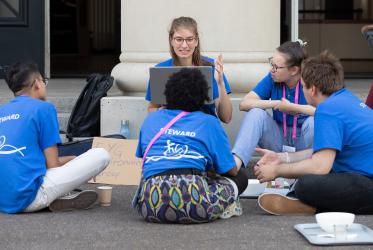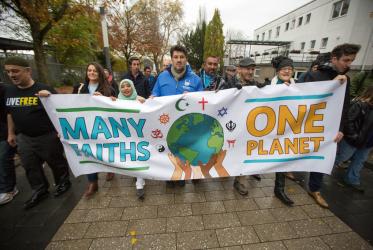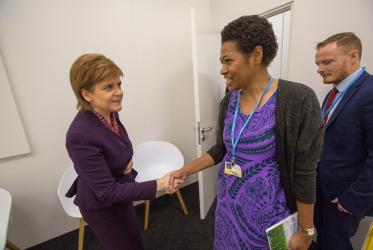Displaying 1 - 8 of 8
01 September 2022
Churches should use their voice on climate change
26 February 2020
COP 23 “debriefing” brings faith and ethical perspectives
23 January 2018
WCC presents interfaith statement to COP23 high level plenary
16 November 2017
First minister of Scotland meets WCC delegation at COP23
16 November 2017





